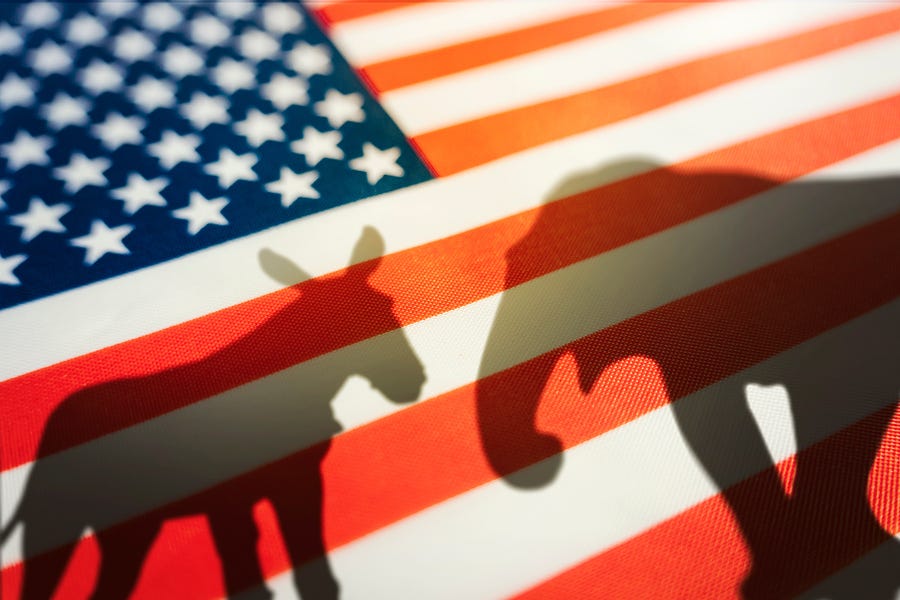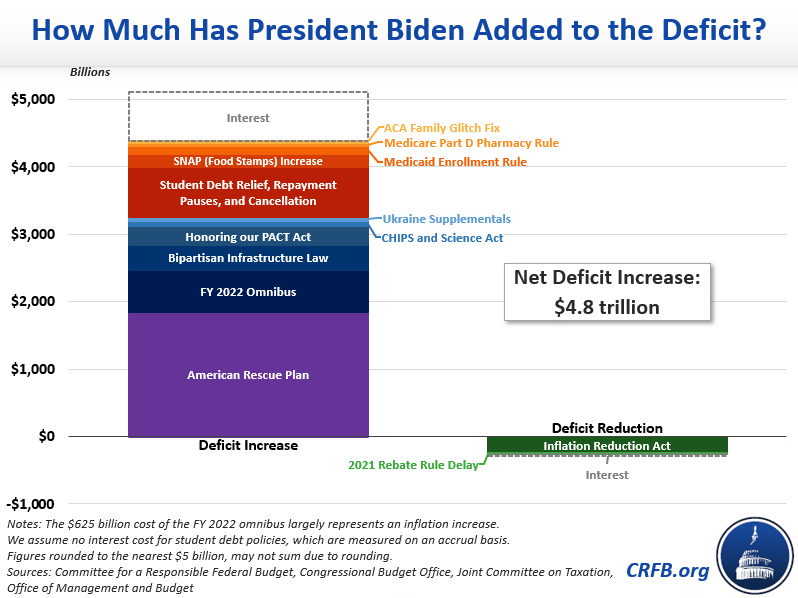In lieu of the standard Triad, I wanted to share a fascinating conversation I had yesterday with Kevin Priola. Priola is a Colorado state senator who switched from the Republican party to the Democratic party earlier this year, citing election integrity and climate.
I wanted to talk to him for a couple reasons. For starters, he and I attended the same high school in suburban Denver about a decade apart, and we both came up in Colorado Republican politics, so there’s a similar perspective there.
But most importantly, he did the thing I have been begging, imploring, and cajoling the anti-Trump Republicans in D.C. to consider: Rather than retire or get whupped in a primary, change parties! And do so without sacrificing your beliefs. As Priola demonstrates, it isn’t as fantastical as it sounds.
I hope you enjoy the convo—in the lightly edited transcript below—as much as I did. I’m unlocking this edition so please share it far and wide.
Tim Miller: First, why don’t you just tell our readers a little bit about your background, how you described your ideology before the reshuffling of the last five years, and your experience before the party switch.
Kevin Priola: Yeah. You know, I was born and raised in Adams County, Colorado, fifth generation Coloradan. I’ve been a registered Republican since I was 17. You can pre-register here before you’re 18.
Tim Miller: I did that too, to primary for George W. Bush against John McCain. What a regret.
Priola: My first vote was, uh, Buchanan vs. George H.W. Bush, back in ’92. But yeah, I just grew up around here and decided to run back in ’08 for a Democrat-leaning district—thinking it would be tough to win, but I worked hard enough and knocked on enough doors and people liked me and I served. From about 2008 until recently it just, every year it seemed like the Republican party got, more extreme and the people winning elections had some bizarre, like paranoid beliefs about stuff and, you know, just didn’t really wanna work to solve problems and fix things like most voters want—most voters I’d ever talked to on the doors.
And, then January 6th happened and I was just, in the
letter I put on Twitter, I just pointed out how shocked I was and, and I thought, well, this, this finally has to be the last straw. Like if the Republican party I signed up for is full of a bunch of principled, solid adults who would realize what he [Trump] just did is beyond the pale. It can’t be excusable. It’s the most impeachable thing any president has ever done. So I thought I would wait and see if people in the party structure and . . . the voters lost faith in him and his polling went down.
And, you know, over a year and a half, it just became apparent to me that [wasn’t going to happen]. I honestly believe that the Republican party doesn’t exist anymore—it’s just a bunch of people that follow Trump or don’t realize that the party only just follows whatever he says or wants, day-to-day, on whatever whim. I would argue that the only legitimate political party left in this country is the Democratic party.
Miller: Talk about the time from 2009 all the way through 2016—about the makeup of the Colorado Republican Party and the caucus and what you saw as the evolution.
Priola: It seemed like when I got there in ’09 there were mostly reasonable Republicans that were conservative, but still wanted to work through and solve problems and come to some consensus from a conservative perspective. They would at least sit down and talk with members of the other party and try to work something out that would be agreeable by 60, 70, 80 percent of the population. But it seemed like after the 2010 election the crop that came in 2011, I don’t know if it was influenced by the Tea Party, but they were just there to lob bombs and to try to find fault with everything. Regardless of how ridiculous it was and stretching the truth ad nauseam.
Back then, they were still a small minority of members. But with each subsequent election they became a larger and larger portion of the Republican caucus. And then I realized the last few years that
I was in the minority by a lot because I kept winning races that were basically Democrat seats as a Republican because I worked so hard and I had the name ID from being there for a while.
So they never would primary me because they knew that whoever ran to my right in a primary, they might win the primary, but they were gonna lose the general election because it was a +4, +5, +6 Dem seat. So, I just realized how much I was in the minority and how far and how extreme the Republican party had moved in the Colorado legislature.
And they kept losing elections but they just kept doubling down and the voter registration kept moving, like it used to be a majority Republican registration state, 10 or 20 years ago. Now it’s a majority Democratic registration, and the number of unaffiliateds has grown exponentially as well. I think actually unaffiliated voters are the largest voting bloc in Colorado now. And I think most of the growth and the unaffiliateds come from people that, unregistered as Republicans just because they don’t like the extreme positions and talking points and ideas that are getting thrown around.
Miller: That’s the legislature—but what about the actual voters? Did you notice a difference in the types of people that showed up to Republican events, when you went to county events? Was there a bottom-up element to this?
Priola: You know, I would go to Republican events in the mid-’90s and there was always that fringe group that had extreme wacky views—but they were definitely the minority. . . . I would say they were the World War II generation, real hardscrabble. They saw real struggle, they saw WWII, they saw the Depression, they experienced that in their youth.
But as times changed, they passed on. And now the activists in the Republican party, as far as I could tell, were baby boomers or younger. And it seemed like the reasonable people just kind of threw their hands up. They’re like,
This is going south. It’s not worth my time. And so by default, the only people that would show up were the people with more extreme points of view. So it becomes like this circular feedback loop that has not been good.
(full article online)
An interview with Kevin Priola, a Colorado legislator who crossed the aisle this summer.

thetriad.thebulwark.com




